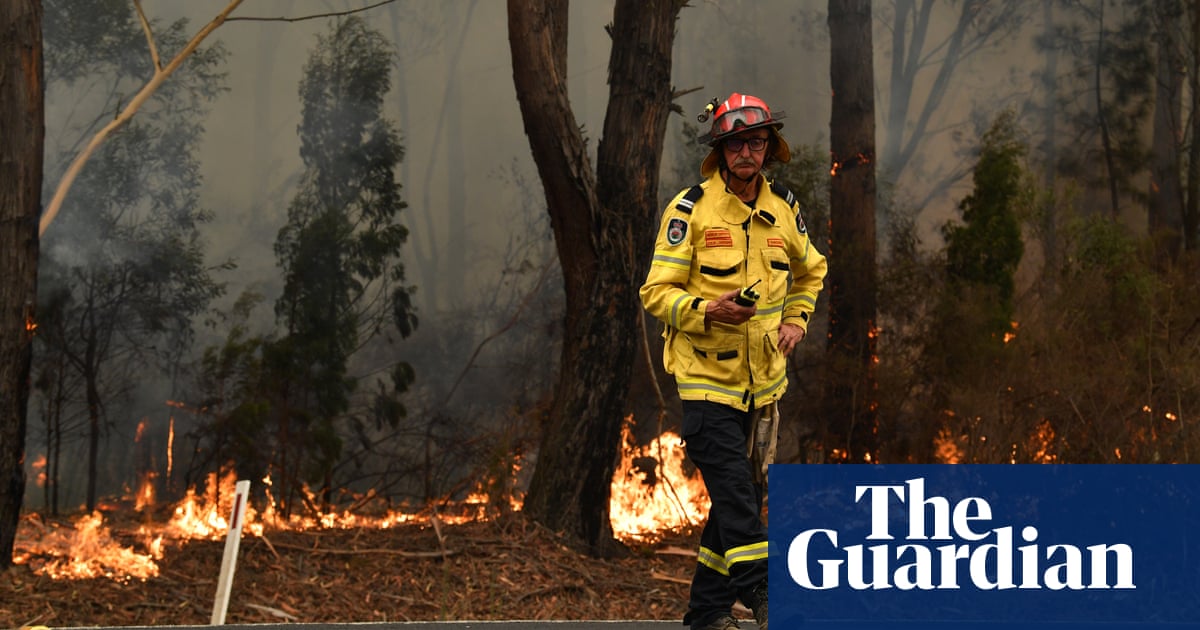The federal Labor MP Mike Kelly has called for a war-like national mobilisation effort to deal with the existential threat of climate change, warning that a failure to act would be the “most serious dereliction of duty in our history”.
The member for the New South Wales electorate of Eden-Monaro, which includes huge areas of the NSW south coast and the Snowy Mountains where destructive bushfires continue to burn, has called for the federal government to establish a civil defence corps (CDC) that would operate as a national disaster response reserve, and said compulsory national service might be necessary.
Arguing the capacity of volunteer personnel was already stretched, Kelly pointed to estimates from the Climate Council suggesting that by 2030 Australia will need double the current number of firefighters.
“The current model of response will not be adequate or sustainable to deal with this,” Kelly wrote in a lengthy Facebook post.
“The reality is that we are facing the kind of existential threat through climate change that demands the same sort of national mobilisation of will as we required in World War II.”
Stressing that his “concept paper” was a personal view and not Labor party policy, Kelly argued the new corps could follow the model of the Australian defence force reserves, and could be funded from a national disaster levy.
“This CDC should encompass all existing volunteer organisations and would be a national resource that could be mobilised for any disaster,” he said.
Under his proposal, members of the new force would be offered incentives after a set period of service, with Kelly suggesting a card be granted that provided similar perks to a seniors card.
“Benefits could include concessional travel, reduced vehicle registrations and personal fire insurance charges, together with limited private medical and life insurance for injuries received during frontline firefighting,”
Incentives could also be offered to employers of CDC members, including potential payroll tax relief and payments made when the reserves were called to service.
The commonwealth would pay tax-exempt remuneration to mobilised members.
Kelly said that in his recent visits to Rural Fire Service centres in his electorate, he had been struck by the age of the volunteer fire service, saying there was a need to attract young people into service.
He said if the CDC was unable to attract sufficient personnel, the government could also consider putting in place a “gap year” scheme or even consider establishing a compulsory non-military national service scheme.
“This would require all high school graduates to be absorbed into the CDC on leaving school for perhaps a one-year period, after which they would be required to render service as required and attend refresher training annually up until the age of 40, after which continuing service would be voluntary,” he said.
He said some would find the proposal “controversial”, but he wanted to trigger a national discussion that generated new ideas to deal with the climate change threat.
“In any event the climate change projections we are looking at may leave no other choice, and we must talk about this now,” he said.
Until the creation of the proposed corp, Kelly warned, the Australian defence force would still be required at the current scale, but “much more efficiently and quickly than has happened”.
He said while ADF personnel were not trained in firefighting, they could play a greater role, with the “fundamental skills of planning, management, deploying organised bodies of personnel … ingrained in the ADF.”
“There are many relevant skills and capabilities they can deploy under direction from the expert civilian authorities,” he said, citing assistance with evacuations, logistics support, earthmoving, bulk water carrying, transport and refuelling.
Defence’s Landing Helicopter Dock vessels could also provide support where there were no ports, or where they were damaged, including modular hospital units and accommodation, vehicles, high-grade communications and air traffic control and large quantities of stores and vehicles.
“The ADF has been providing air, naval and other support but much more was needed and possible,” he said.
On Saturday, Scott Morrison announced a plan to deploy 3,000 army reservists to assist in the bushfire crisis, but came under fire for failing to communicate with the NSW Rural Fire Service about the plan and for launching a party-political ad promoting the effort.
Source: Climate change | The Guardian





